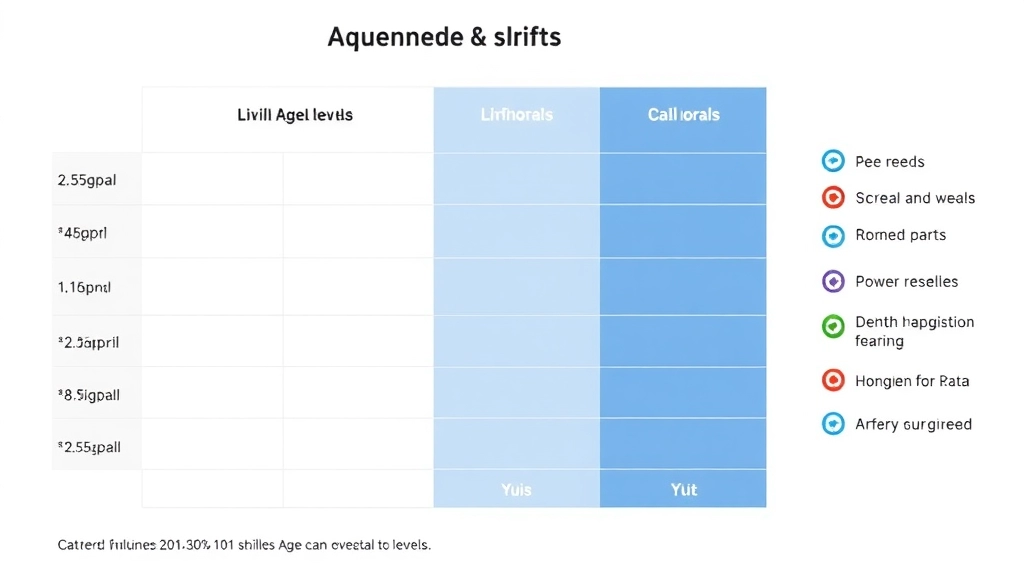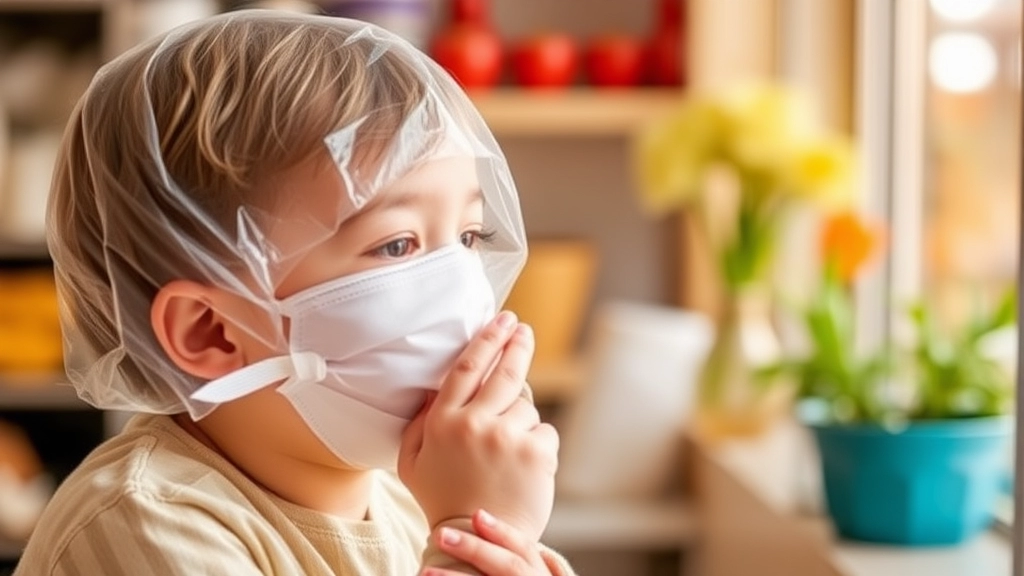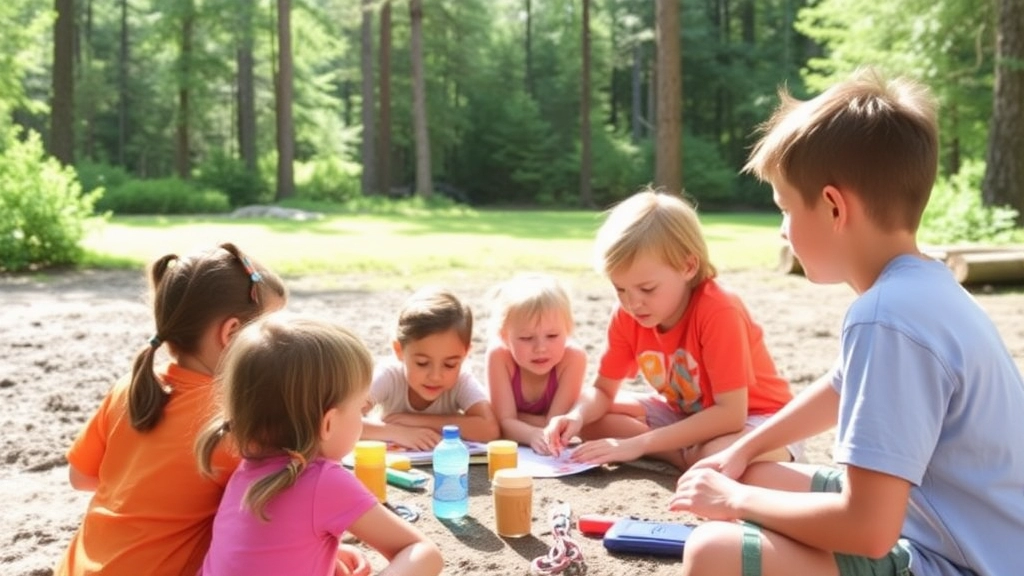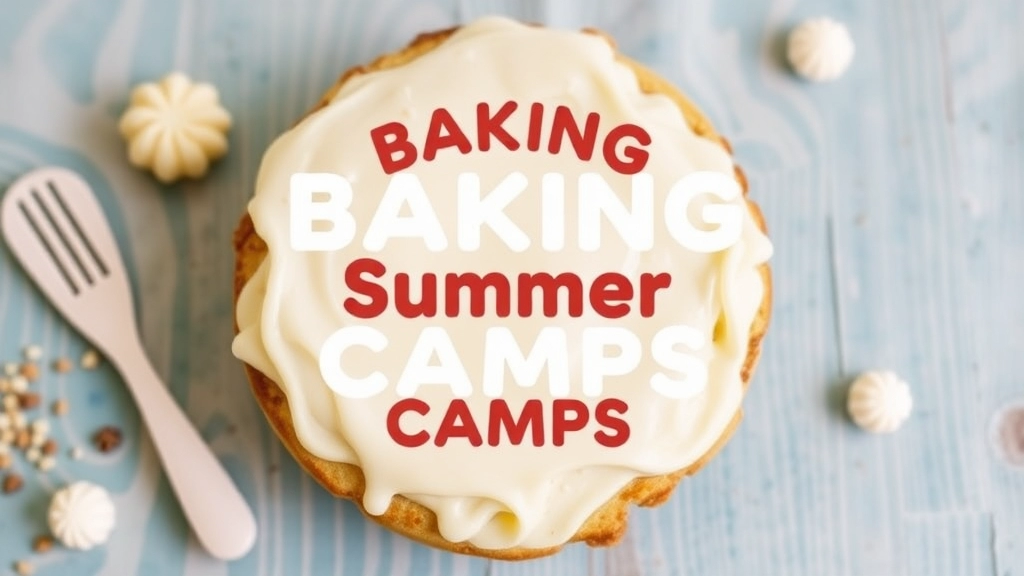Summer Baking Camps for Young Chefs
Are you searching for the perfect summer activity for your young aspiring chef? Baking summer camps offer a fantastic opportunity for kids and teens to dive into the culinary world. These camps provide hands-on experiences, guided by professional chefs, ensuring your child not only has fun but also learns valuable baking skills.
From beginner to advanced levels, baking summer camps cater to various age groups and skill sets. With a focus on safety and allergy considerations, these camps create a safe and inclusive environment for all participants. Whether you prefer virtual or in-person options, there’s a baking camp out there to suit your needs. Get ready to explore the exciting world of baking this summer!
Types of Baking Summer Camps
Ever wondered what types of baking summer camps are out there? You’re not alone. Parents and budding bakers often ask me, “What kind of baking camps are available and which one should we choose?” Let’s break it down, no fluff, just the good stuff.
Traditional Baking Camps
These are the bread and butter of baking camps (pun totally intended). Traditional baking camps focus on teaching the basics:
- Baking Bread: From simple white loaves to more complex sourdough.
- Pastries and Desserts: Think cookies, brownies, and cupcakes.
- Savory Bakes: Quiches, pies, and savoury tarts.
These camps are perfect for beginners and intermediate bakers. They cover a wide range of topics and give a solid foundation.
Specialty Baking Camps
Got a kid who’s obsessed with cupcakes or macaroons? Specialty camps focus on one type of baking or a specific theme:
- Cupcake Camps: Everything from baking to decorating.
- French Pastry Camps: Macaroons, éclairs, and more.
- Cake Decorating Camps: Master the art of frosting, fondant, and intricate designs.
These camps are great for those who already have some baking experience and want to dive deeper into a specific area.
Professional Baking Camps
For the serious young baker aiming to become the next Great British Bake Off champion, professional baking camps are the way to go:
- Advanced Techniques: Laminated doughs, tempering chocolate, and more.
- Industry Insights: Learn about running a bakery, food safety, and presentation.
- Guest Chefs: Workshops with professional bakers and pastry chefs.
These camps are intense and best suited for older kids and teens with a real passion for baking.
Themed Baking Camps
Want to add a bit of fun and creativity? Themed baking camps are all about combining baking with a bit of storytelling:
- Holiday Baking Camps: Christmas cookies, Halloween treats, and Easter bakes.
- Character-Themed Camps: Bake with themes from popular movies or books.
- Cultural Baking Camps: Explore baking traditions from around the world.
These camps are a hit with younger kids and those who love a bit of imagination in their baking.
Health-Focused Baking Camps
With more awareness around food allergies and health, these camps cater to specific dietary needs:
- Gluten-Free Baking: Learn to bake without wheat.
- Vegan Baking: No eggs, no dairy, no problem.
- Nut-Free Baking: Safe for those with nut allergies.
These camps are essential for kids with dietary restrictions and also teach valuable lessons about alternative ingredients.
Why It Matters
Choosing the right baking camp can make a world of difference. Whether your child is a beginner or an aspiring pro, there’s a camp out there that fits their needs. For more information on some of the best summer camps available, check out our guide to Pittsburgh summer camps or explore our list of fun summer camp activities to make the most of your camp experience.
Age Groups and Skill Levels Catered

Ever wondered if your child is too young or too old for a baking summer camp?
Or maybe you’re curious if they’ll be placed with kids who share their skill level?
Let’s break it down.
Age Groups: Who’s In?
Little Bakers (Ages 5-8)
- Perfect for the tiny tots who love getting their hands messy.
- Simple recipes like cookies and cupcakes.
- Lots of fun and creativity.
Junior Chefs (Ages 9-12)
- For kids who can follow basic instructions.
- Introduction to more complex recipes.
- Learning the basics of kitchen safety.
Teen Gourmets (Ages 13-17)
- Ideal for teens with a serious interest in baking.
- Advanced techniques and recipes.
- Some camps even offer certification.
Skill Levels: From Rookie to Pro
Beginners
- No prior experience needed.
- Focus on fundamental skills.
- Basic recipes and techniques.
Intermediate
- Some baking experience required.
- More challenging recipes.
- Introduction to baking science.
Advanced
- For those who really know their stuff.
- Complex recipes and techniques.
- Often includes elements of pastry arts.
Why This Matters
You don’t want your kid feeling out of place.
Imagine a 5-year-old trying to keep up with teens.
Or a beginner struggling with advanced techniques.
The right age group and skill level ensure everyone has fun and learns.
Real Stories: Keeping It Relatable
Take Sarah, a 10-year-old who joined a baking camp last summer.
She was a beginner, but the camp placed her in a group with kids her age and skill level.
By the end of the camp, she was baking brownies and cupcakes like a pro.
Her mum couldn’t believe the transformation.
And Sarah?
She made new friends and discovered a passion for baking.
Why Choose the Right Camp?
- Comfort: Kids feel more comfortable when they’re with peers.
- Learning: They learn better when the material matches their skill level.
- Fun: The right group makes the experience enjoyable.
Key Features of Baking Camps
Ever wondered what makes a baking camp stand out? Maybe you’re a parent who’s worried about whether your child will actually learn something useful or just end up with flour in their hair. Or perhaps you’re a young baking enthusiast keen to up your game. Well, let me break it down for you.
Hands-On Learning
First off, baking camps are all about getting your hands dirty. Literally. It’s not just about watching someone else bake; it’s about doing it yourself. Imagine rolling up your sleeves, mixing ingredients, and seeing your creation come to life. That’s what makes it real and engaging.
- Interactive Sessions: These camps aren’t just lectures. You’ll be mixing, kneading, and decorating.
- Real Recipes: You’ll be working with recipes you can actually use at home. No weird, fancy stuff that you’ll never try again.
- Immediate Feedback: Instructors are there to guide you every step of the way. Mess up? No worries. They’ll show you how to fix it.
Professional Guidance
You might be thinking, “Who’s going to be teaching these classes?” Good question. The best baking camps have experienced bakers and chefs who know their stuff.
- Expert Instructors: These aren’t just hobbyists; they’re professionals who’ve been in the industry for years.
- One-on-One Attention: Smaller class sizes mean you get more personalised attention. You’re not just another face in the crowd.
State-of-the-Art Facilities
Let’s talk about the environment. The kitchen setup can make or break the experience.
- Modern Equipment: Camps often provide top-notch tools and appliances, so you get a feel for what it’s like to bake in a professional setting.
- Safe and Clean: Hygiene is paramount. You can expect a clean, organised workspace.
Customised Learning Paths
Everyone’s at a different skill level, and the best baking camps get that.
- Beginner to Advanced Levels: Whether you’re just starting out or you’re looking to refine your skills, there’s something for everyone.
- Specialised Classes: Interested in cupcakes? Or maybe bread? Camps often offer specialised tracks so you can focus on what you love.
Fun and Engaging Activities
Learning doesn’t have to be boring. These camps make sure you’re having a blast while picking up new skills.
- Team Challenges: Think of it like a mini Bake Off. Compete in friendly challenges to test your skills.
- Creative Projects: From cake decorating to inventing your own recipes, there’s plenty of room for creativity.
Real-Life Stories
Let me share a quick story. I remember a young lad named Jamie who joined a baking camp last summer. He was shy and had zero baking experience. By the end of the camp, not only was he baking delicious cookies, but he also made new friends and gained a ton of confidence. His mum told me it was the best thing that happened to him all year.
If you’re interested in exploring more about summer camps, check out our top summer camp challenges for fun and team building and our essential summer camp packing list to ensure you’re well-prepared for the adventure.
Safety and Allergy Considerations

Ever worried about your child’s safety at a baking camp?
Or what if they have a nut allergy and you’re losing sleep over it?
I get it.
We all want our kids to have fun, but safety is non-negotiable.
Let’s dive into how baking camps handle these concerns.
1. Safety First, Always
When it comes to safety, baking camps don’t mess around.
Here’s what they typically do:
- Qualified Instructors: Camps hire professionals who know their stuff. They’re trained to handle kids and the kitchen.
- Safety Gear: Aprons, gloves, and sometimes even hairnets. It’s all part of the package.
- Supervised Activities: No child is left alone with hot ovens or sharp knives. There’s always an adult nearby.
2. Allergy Awareness
Food allergies are a big deal.
Baking camps get it.
Here’s how they manage:
- Detailed Forms: You’ll fill out a form listing any allergies. Camps take this seriously.
- Separate Stations: For kids with severe allergies, some camps set up separate cooking stations.
- Ingredient Checks: They scrutinise every ingredient. No sneaky nuts or hidden dairy here.
- Emergency Protocols: Camps are ready with EpiPens and first aid kits. Staff are trained to act fast if needed.
3. Real Stories, Real Solutions
Let me share a quick story.
A friend of mine was hesitant to send her daughter to a baking camp because of her severe peanut allergy.
But she gave it a shot.
The camp had a strict no-nut policy and separate utensils for allergy-prone kids.
Her daughter came back not just safe, but also with a newfound love for baking.
4. What You Can Do
As a parent, you can take extra steps:
- Ask Questions: Don’t hesitate to ask the camp about their safety protocols.
- Pack Extras: Send along any special snacks or ingredients your child might need.
- Stay Informed: Make sure you know who to contact in case of an emergency.
Safety and allergy considerations are top priorities at baking camps.
They’ve got it covered so your child can focus on the fun stuff—like making the perfect cupcake.
And you?
You get peace of mind.
Win-win.
Virtual vs. In-Person Baking Camp Options
Alright, let’s dive right into it. If you’re a parent or a budding baker, you’re probably torn between virtual and in-person baking camp options. So, which one should you go for? Let’s break it down.
Real Concerns and Questions
- “Will my child get the same experience online?”
- “Is it safe to send them to an in-person camp?”
- “What about the cost differences?”
These are the questions that keep you up at night, right? Let’s tackle them head-on.
In-Person Baking Camps
Pros:
- Hands-On Experience: Nothing beats the tactile feel of dough in your hands. Your child gets to touch, feel, and even smell the ingredients as they work.
- Social Interaction: Kids get to make new friends and learn teamwork. It’s a fantastic way to build social skills.
- Immediate Feedback: Instructors can provide instant corrections and tips, which can be invaluable.
Cons:
- Safety Concerns: With the ongoing pandemic, safety is a big issue. You’ll need to ensure the camp follows strict health guidelines.
- Location Limitations: You’re restricted to camps within a certain radius unless you’re willing to travel.
- Higher Costs: Often, in-person camps come with higher fees due to the need for physical space and materials.
Virtual Baking Camps
Pros:
- Flexibility: No need to worry about commuting. The kitchen is just a few steps away.
- Cost-Effective: Generally, virtual camps are cheaper. Plus, you save on travel and accommodation costs.
- Safe Environment: Your child stays at home, reducing exposure to potential health risks.
Cons:
- Less Hands-On: The tactile experience is limited. Your child won’t get the same feel as they would in a physical setting.
- Technical Issues: Internet problems can disrupt the learning experience.
- Limited Social Interaction: While there are opportunities to interact online, it’s not the same as face-to-face communication.
Balancing the Scales
So, what’s the best choice? It boils down to what you value more:
- For a more immersive, hands-on experience: Go for in-person camps.
- For flexibility and safety: Virtual camps are your best bet.
Real-Life Example
Let’s say my niece, Emily, loves baking. Last summer, she attended a virtual baking camp due to the pandemic. She enjoyed it but missed the hands-on aspect and making new friends. This year, she’s excited to join an in-person camp where she can get her hands dirty and meet other young bakers.
Camp Locations and Availability

Wondering where to find the best baking summer camps?
You’re not alone.
Finding the right camp location and availability is crucial.
You want your kid to have the best experience, right?
Local Camps vs. Destination Camps
First, decide if you want a local option or if you’re up for a bit of travel.
Local Camps:
- Convenient
- Easy drop-off and pick-up
- Familiar surroundings
Destination Camps:
- Adventure
- New experiences
- Often more comprehensive programs
Availability
Timing is everything.
Most baking camps run during the summer, but some offer sessions during school holidays.
How to Check Availability:
- Camp Websites: Most camps have up-to-date availability on their sites.
- Social Media: Follow your favourite camps for the latest updates.
- Email Notifications: Sign up for newsletters to get early bird offers and notifications.
Popular Locations
London: Plenty of options, from basic to advanced.
Manchester: Known for its vibrant camp culture.
Edinburgh: Offers unique baking experiences in historic settings.
Birmingham: A growing hub for culinary camps.
Example Story:
Last summer, my neighbour’s kid attended a baking camp in Manchester.
She came back with a newfound love for French pastries and a bunch of new friends.
Her mum said it was the best decision they made for the summer holidays.
Ready to find the perfect camp?
Registration Process and Fees
Alright, let’s dive into the nitty-gritty of getting your kid signed up for a baking summer camp. Trust me, I know the process can feel like a maze. But don’t worry, I’ve got your back. Let’s break it down so you can get your little baker ready to roll.
How Do I Register My Child?
First things first, you’re probably wondering, âHow do I even start?â Here’s the deal:
- Find the Right Camp: Look for camps that fit your child’s age and skill level. Whether they’re a complete newbie or a mini Gordon Ramsay, there’s something out there for everyone.
- Check Availability: Camps fill up fast, especially the good ones. So, get in early. Most camps have an online portal where you can see available dates and slots.
- Fill Out the Forms: This usually includes basic info about your child, any allergies, and emergency contact details. Some camps might ask for a bit more, like a baking experience level.
- Pay the Fees: Once you’ve filled out the forms, you’ll need to pay the registration fee. This can usually be done online through a secure payment gateway.
What Are the Fees Like?
Now, let’s talk money. Here’s what you need to know:
- Registration Fee: This is a one-time fee to secure your child’s spot. It can range from £20 to £50.
- Camp Fee: This is the big one. Depending on the camp’s duration, location, and what’s included, you could be looking at anywhere from £200 to £600 for a week-long camp.
- Materials Fee: Some camps might charge a separate fee for ingredients and supplies, usually around £30 to £50.
- Discounts: Keep an eye out for early bird discounts or sibling discounts. Every little bit helps!
Real Concerns, Real Answers
You might be thinking, âThis sounds expensive. Is it worth it?â Here’s my take:
- Skill Development: Your child will learn valuable baking skills that they can use for life. Plus, it’s a great way to boost their confidence.
- Social Interaction: They’ll make new friends and learn to work as part of a team. That’s priceless.
- Fun Factor: Let’s be real, baking is fun! And who doesn’t love coming home with a box of freshly baked goodies?
Quick Tips
- Early Registration: Don’t wait until the last minute. Camps fill up quickly, and you don’t want your child to miss out.
- Read Reviews: Check out what other parents are saying. A good review can give you peace of mind.
- Ask Questions: If you’re unsure about anything, don’t hesitate to contact the camp organisers. They’re usually more than happy to help.
Camp Activities and Daily Schedules

Ever wondered what a day at a baking summer camp looks like?
You’re not alone.
Many parents and young bakers have the same question.
So, let’s dive in and break it down.
Daily Schedules: What to Expect
A baking camp isn’t just about mixing ingredients; it’s a whole experience.
Here’s a typical day:
Morning Session
- Welcome and Warm-Up: Start with a quick meet-and-greet. Maybe some icebreakers.
- Intro to the Day’s Recipe: Learn what you’ll be baking. Think cookies, cakes, or even bread.
- Hands-On Baking: Get your hands dirty. Mix, knead, and bake.
- Snack Break: Enjoy a quick snack. Maybe even taste what you baked!
Afternoon Session
- Lunch Break: Refuel with a packed lunch. Chat with new friends.
- Creative Decorating: Time to get artistic. Frosting, sprinkles, and all that jazz.
- Baking Science: Learn why baking powder works. Simple, fun science.
- Wrap-Up: Clean-up time and a quick review. What did you learn today?
Camp Activities: More Than Just Baking
It’s not all about the oven.
Here’s what else goes down:
- Team Challenges: Work in groups. Maybe a cupcake decorating contest.
- Guest Chefs: Sometimes, pros drop by. Learn from the best.
- Field Trips: Visit a local bakery. See the pros in action.
- Recipe Sharing: Swap recipes with friends. Start your own collection.
Why This Matters
These activities aren’t random.
They teach skills.
- Teamwork: Working with others is key.
- Creativity: Think outside the box. Make your bakes unique.
- Discipline: Baking needs focus. Follow the recipe, step by step.
Real Stories, Real Fun
I remember one camp where a kid named Jamie made his first-ever cake.
He was nervous.
But by the end of the week?
He was a pro.
His mum couldn’t believe it.
Benefits of Enrolling in Baking Camps
Ever wondered if baking camps are worth it?
Let’s dive into why they are.
Why Baking Camps Rock
First off, baking camps aren’t just about making cakes.
They’re about learning life skills, having fun, and meeting new friends.
Here’s what you get out of it:
1. Skill Development
You learn to bake, obviously.
But it’s more than that.
You get:
- Precision and measurement skills: Baking is a science. You learn to follow recipes to the letter.
- Creativity: Decorating cakes and cookies lets your imagination run wild.
- Patience and time management: Good things take time. You learn to wait and manage your tasks.
2. Social Interaction
You meet kids who love baking as much as you do.
That means:
- Making new friends: Shared interests make bonding easy.
- Teamwork: Many activities require working in pairs or groups.
3. Confidence Boost
Ever seen a kid’s face light up when they pull a perfect cupcake out of the oven?
That’s confidence.
Baking camps help kids believe in themselves.
4. Independence
Kids learn to follow recipes, measure ingredients, and clean up after themselves.
That’s a step towards independence.
5. Fun and Enjoyment
Let’s not forget the fun part.
Baking camps are a blast.
From mixing batter to decorating cookies, every step is enjoyable.
Real Stories
Take Lucy, for example.
She was shy and hesitant to try new things.
After a week at baking camp, she was a different kid.
Confident, happy, and proud of her creations.
Ready to sign up?
Don’t wait. Explore our top Salt Lake summer camps to find the perfect fit for your child.
The benefits are just too good to pass up. For more options, check out our affordable summer camps for 5-year-olds.
FAQs on Baking Summer Camps
What age groups do baking summer camps cater to?
Baking summer camps typically cater to various age groups, ensuring that children are placed with peers of similar ages. Common age groups include:
- Little Bakers (Ages 5-8): Perfect for young kids who enjoy simple recipes like cookies and cupcakes.
- Junior Chefs (Ages 9-12): Suitable for kids who can follow basic instructions and are ready for more complex recipes.
- Teen Gourmets (Ages 13-17): Ideal for teens with a serious interest in baking, focusing on advanced techniques and recipes.
Are there different skill levels available at baking camps?
Yes, baking camps often offer sessions tailored to different skill levels:
- Beginners: No prior experience needed, focusing on fundamental skills and basic recipes.
- Intermediate: Requires some baking experience, with more challenging recipes and an introduction to baking science.
- Advanced: For those with significant experience, involving complex recipes and pastry arts.
What safety measures do baking camps implement?
Safety is a top priority at baking camps. Common safety measures include:
- Qualified Instructors: Professionals trained to handle both kids and kitchen environments.
- Safety Gear: Provision of aprons, gloves, and sometimes hairnets.
- Supervised Activities: Continuous supervision to ensure safe handling of hot ovens and sharp tools.
How do baking camps handle food allergies?
Baking camps take food allergies seriously. They manage allergies by:
- Detailed Allergy Forms: Collecting comprehensive information on any allergies.
- Separate Cooking Stations: Providing separate areas for kids with severe allergies.
- Ingredient Checks: Thoroughly checking all ingredients to avoid allergens.
- Emergency Protocols: Being prepared with EpiPens and trained staff for quick response.
Where can I find baking summer camps?
Baking summer camps are available in various locations. You can choose between local camps and destination camps:
- Local Camps: Convenient with easy drop-off and pick-up in familiar surroundings.
- Destination Camps: Offer new experiences and often more comprehensive programs.
Popular locations include London, Manchester, Edinburgh, and Birmingham.
How can I check the availability of baking camps?
To check the availability of baking camps, you can:
- Visit Camp Websites: Most camps provide up-to-date availability on their websites.
- Follow on Social Media: Get the latest updates by following your favourite camps on social media.
- Sign Up for Newsletters: Receive early bird offers and notifications by subscribing to newsletters.
What does a typical day at a baking summer camp look like?
A day at a baking summer camp is packed with activities. Here’s a typical schedule:
Morning Session
- Welcome and Warm-Up: Quick meet-and-greet, possibly with icebreakers.
- Intro to the Day’s Recipe: Learn about the recipe of the day.
- Hands-On Baking: Engage in mixing, kneading, and baking.
- Snack Break: Enjoy a snack, possibly tasting what was baked.
Afternoon Session
- Lunch Break: Have lunch and socialize with new friends.
- Creative Decorating: Decorate baked goods with frosting and sprinkles.
- Baking Science: Learn simple baking science concepts.
- Wrap-Up: Clean up and review what was learned.
What other activities are included in baking camps?
Baking camps offer a variety of activities beyond baking:
- Team Challenges: Group activities like cupcake decorating contests.
- Guest Chefs: Sessions with professional chefs.
- Field Trips: Visits to local bakeries.
- Recipe Sharing: Exchange recipes with fellow campers.
Why is it important to choose the right camp for my child?
Choosing the right camp ensures:
- Comfort: Kids feel more at ease when with peers.
- Learning: Better learning when the material matches their skill level.
- Fun: The right group enhances the overall experience.
References
-
50 Campfire Recipes
-
Kid-Friendly Cooking Camps
-
Summer Cooking Camps for Kids

